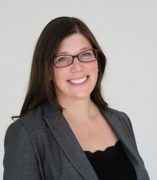
Amy Landis
Outstanding Achievement Award
Civil, Materials, and Environmental Engineering
About
Dr. Amy Landis joined Colorado School of Mines in August 2017 as the first Presidential Faculty Fellow for access, attainment, and diversity. Previously, she was a full professor at Clemson University from 2015 to 2017 as the Thomas F. Hash ’69 endowed chair in sustainable development. There, she served as director for Clemson’s Institute for Sustainability, which brought together interdisciplinary research, education, and business for sustainability. Amy spent her years as associate professor at Arizona State University’s School of Sustainable Engineering in the Built Environment from 2012 to 2015. During her tenure at ASU, she served as director of research for the Center for Earth Systems Engineering and Management, senior sustainability scientist for the Global Institute of Sustainability, Lincoln Fellow of sustainable development and ethics for the Lincoln Center for Applied Ethics, and Tooker Professor of STEM education for the Ira A. Fulton Schools of Engineering. Amy began her career as an assistant professor at the University of Pittsburgh after having obtained her PhD in 2007 from the University of Illinois Chicago under the supervision of Dr. Thomas L. Theis.
Amy has developed a research program in sustainable engineering of bioproducts. Her research ranges from design of systems based on industrial ecology and byproduct synergies, life cycle and sustainability assessments of biopolymers and biofuels, and design and analysis of sustainable solutions for healthcare. Since 2007, she has led ten federal research projects and collaborated on many more, totaling more than $30 million in collaborative research. Amy continues to grow her research activities and collaborations to include multidisciplinary approaches to sustainable systems. She is dedicated to sustainability engineering education, outreach, and diversity in STEM. She has established networking and mentorship programs at three different universities to advance diversity and STEM. She also works with local high schools, after-school programs, local nonprofit organizations, extensions, and museums to integrate sustainability and engineering into K-12 and undergraduate curricula.